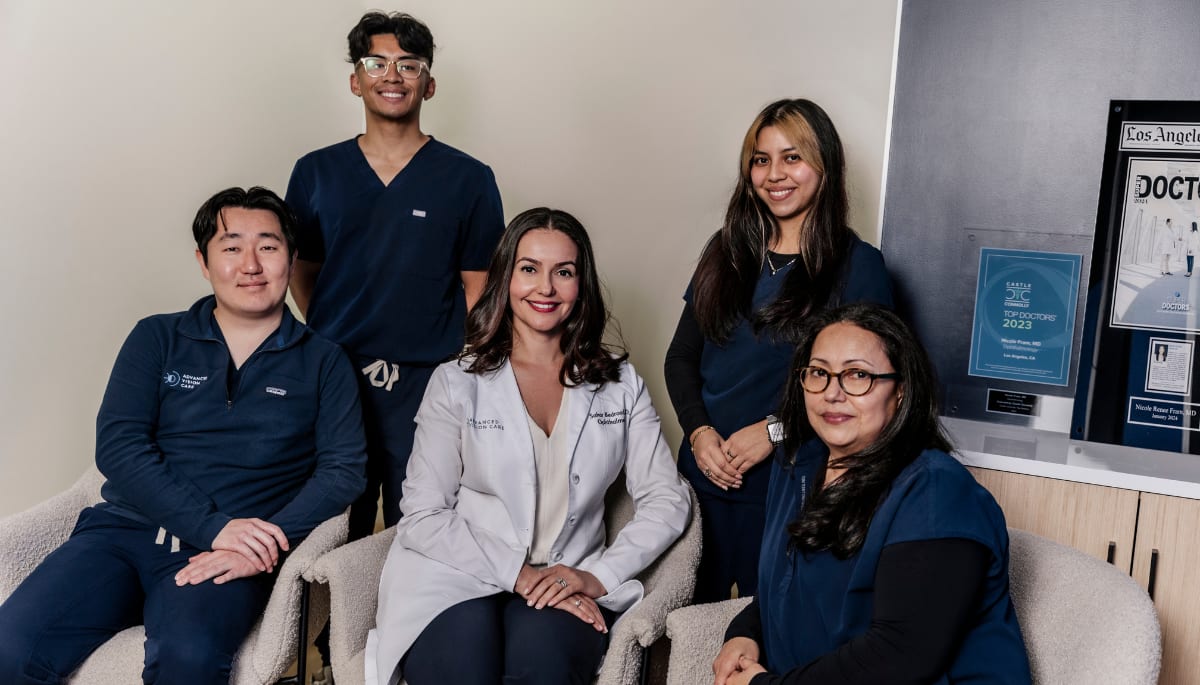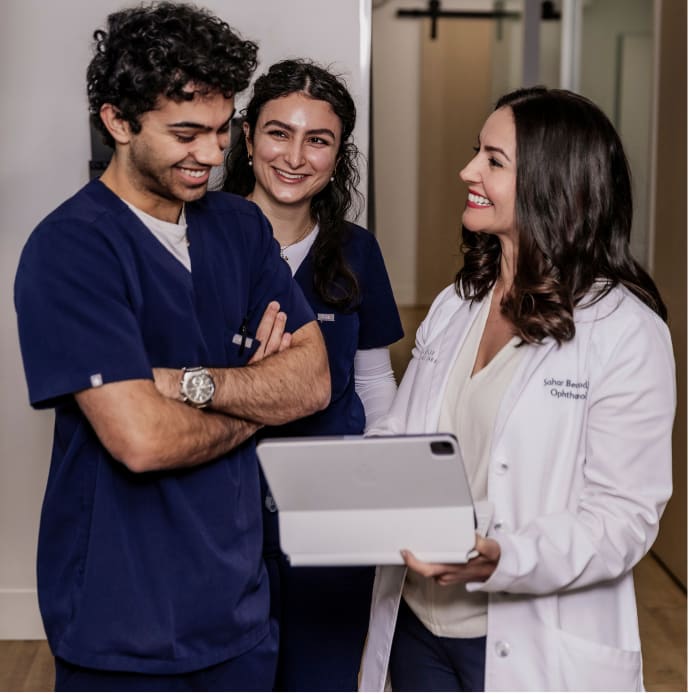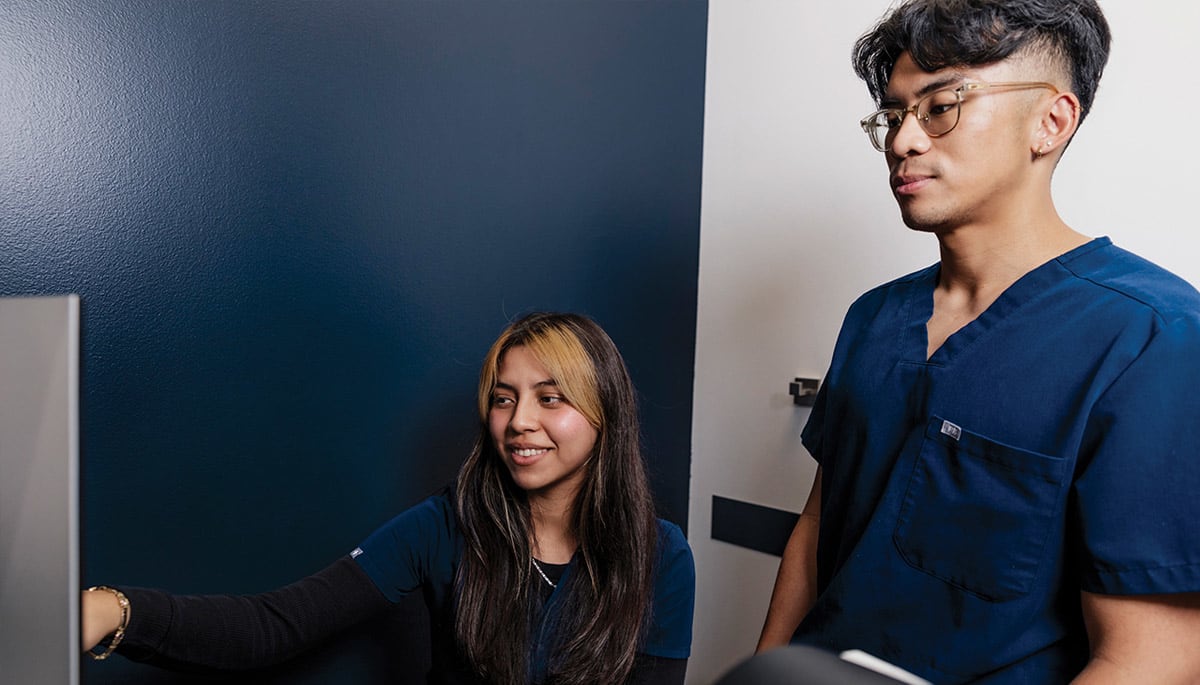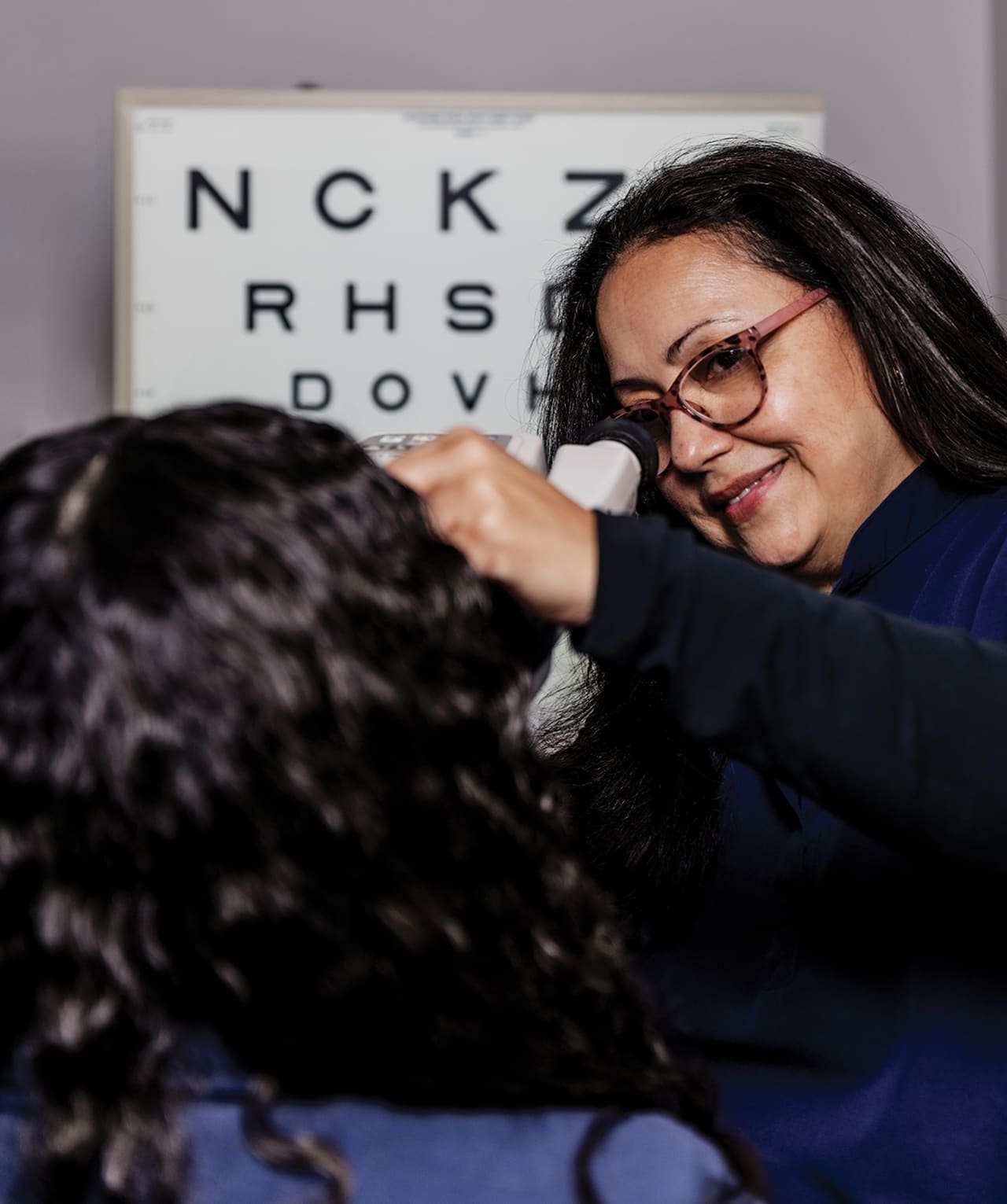As a practice that puts “what’s right for the patient” first, Advanced Vision Care (AVC) keeps compassion and customization at the forefront of their treatment approach. The Los Angeles-based practice offers a complete gamut of eye-care services including cataract, glaucoma, corneal and refractive care, and have built a name by not only staying on the cutting edge of what’s new, but also acquiring tough and even underserved cases. It’s all part of their patient-first mentality.
Some of the most difficult specialty cases are often in the anterior glaucoma segment, according to Andrew Cho, practice administrator for AVC. And that’s because in many ways he says, “it’s the antithesis to everything else we do here.”
“All of our other services including cataract surgery, refractive surgery, and even dry eye care are about improving vision,” Mr. Cho explains. “But glaucoma care is about slowing down the progression of losing vision. Often patients who come to us have already had failed surgeries or have been deemed difficult cases for one reason or another. These are patients who might be afraid or feel abandoned. But what sets our team apart is that when we get these difficult cases, we don’t run. We’re up for the challenge.”
Sahar Bedrood, MD, PhD, board-certified and fellowship-trained glaucoma doctor and cataract specialist at AVC, adds that the landscape of medical care and insurance coverage is always changing. These changes can also present challenges to patients and physicians, but AVC maintains a flexible and realistic approach to care that puts the patient first.
“For example, insurance coverage of more innovative and minimally invasive procedures is a challenge,” she continues. “Sometimes I have to pivot our surgical plan to make sure the patient gets what they need — but at times, what they need still isn’t covered. We all must lobby and be active in society activities that help fight for coverage.”
It begins with this question
“The easiest way to make any decision — whether it has to do with lens selection, combining a MIGS case, proceeding with a surgical procedure or any other choice — is to ask if it’s best for the patient,” Dr. Bedrood says. “If the answer is yes, then we do it. That’s the AVC motto. When you do good work, then good will always come back to you. It’s also about doing what’s right.”
“What’s right” is also the driver behind The Masket Foundation, which is the community service arm of the practice, named after Samuel Masket, MD, founding partner at AVC. The Foundation helps provide state-of-the-art eye care for patients with inadequate resources.
Along with providing eye-care services to those in financial need, the foundation is also dedicated to advancing education in the field of ophthalmology by training future generations of ophthalmologists. Staff at AVC also have the opportunity to volunteer their Saturdays to come into the clinic and help with the Foundation.
There are so many rewarding stories that come out of these efforts, including that of California Highway Patrol officer Dane Norem who was told he would never have fully recovered vision after being stabbed in the eye. After artificial iris implants, Officer Norem’s vision has been restored.
Involvement in cases like these has been one of Paul Paterno’s favorite aspects of working at AVC. The ophthalmic technician says it’s very inspiring and also shows how much the practice truly cares about the people who live in their community.
“On a daily basis, I see the doctors here go above and beyond, and that trickles down to the way the staff also treats patients,” he says. “They take the time to give extra counseling or extra testing. Our doctors are comprehensive and are always looking for the most innovative way to handle the toughest cases. They are constantly setting the bar higher.”
Addressing glaucoma’s psychological burden
“Setting the bar higher” comes in the form of keeping up with the latest research, acquiring new equipment and participating in clinical trials. But it also comes in the form of encouraging technicians to be compassionate.
Ofelia Portillo, clinical manager, echoes similar sentiments. She says that technicians are trained to treat patients like family — and that’s a differentiator in many tough cases. Ms. Portillo says one way this is achieved is by accommodating same-day appointments when patients have an urgent concern. This is something she experienced first-hand 14 years ago when her stepfather had a surgery and experienced subsequent problems.
“Dr. Nicole Fram, a board-certified ophthalmologist specializing in refractive and complex cataract surgery, anterior segment reconstruction and corneal transplantation at AVC, met us after hours at 9 pm and scheduled emergency surgery the same week,” she recalls. “This is how I came to work for AVC and became part of the AVC family.”
It’s not uncommon for patients to find their way to the practice after having been elsewhere.
“We see a lot of patients who have had surgery elsewhere and when they get to us, they’ve been through a lot already,” she says. “They are emotionally beaten. Glaucoma can be sad and we do get patients who are discouraged. But our doctors have had a lot of success with these patients. And just as important, as a staff, we’ve helped them feel that we’re here for them. Everyone that walks in, we think of them like they are part of our family — that’s the AVC way.”
Mr. Cho adds that tough cases include glaucoma patients with IOPs that remain elevated even after maximum drop therapy and initial surgical intervention as well as less-common glaucoma such as glaucoma secondary to cosmetic iris implants. He says that staff follow protocols for complicated cases and the doctor is always involved early on in the work-up to make decisions around testing.
“We’re very fortunate that our staff has great personal skills and there isn’t any special training required,” he says.
Dealing with insurers
In today’s reimbursement-driven medicine, patients often do find it challenging to find a practice committed to prioritizing the patient, adds Dr. Bedrood. But this is another way AVC aims to be different.
“For me, the premise is about why I wanted to be a doctor in the first place — and that was to do something noble and to be helpful to society,” she says. “That is at the root of what drives me when I see my patients. It’s why I love glaucoma care. While we do premium IOLs and the other boutique premium services people are often looking for, it’s often the tough cases where we’ve talked them through a scary process that give the most satisfaction.”
While there’s nothing fun about prior authorizations and spending a lot of time on the phone with insurance companies and pharmacies, Mr. Paterno says that keeping patients at the forefront of the process is what keeps them going.
“It’s often like a rinse and repeat cycle,” he says. “We have to do it again and again for patients. We might also have to go through the same explanations with patients who don’t fully understand their condition. But we have to do it like it’s the first time for every patient. It’s easier for the staff to adopt this attitude when we see it from our doctors.”
Time is set at the end of the morning and afternoon to give staff time to work on phone calls to patients, prior authorizations, or to follow up with pharmacies.
“It helps to create a database of information on what works as prior authorizations do tend to follow a specific formula,” Mr. Cho says. “When we find a pathway that works, we share it so it makes it easier for the future. Additionally, we try to find pharmacies that are willing to work with us and have an expedited system to help get that information through quicker. Keeping the patient informed and letting them know what goes into the process can help reduce their anxiety.”
The example comes from the top
Mr. Cho adds that the focus is on “leading by example.” He says that Dr. Bedrood and the other doctors demonstrate compassion and dedication in all that they do.
“There is an environment here that we’re all in this together and I think that comes through in the way we treat patients, too,” he sums up. “We are an innovative practice that aims to stay on the cutting edge, but we’re also a practice that genuinely cares and sometimes that’s what patients need the most.” OP














